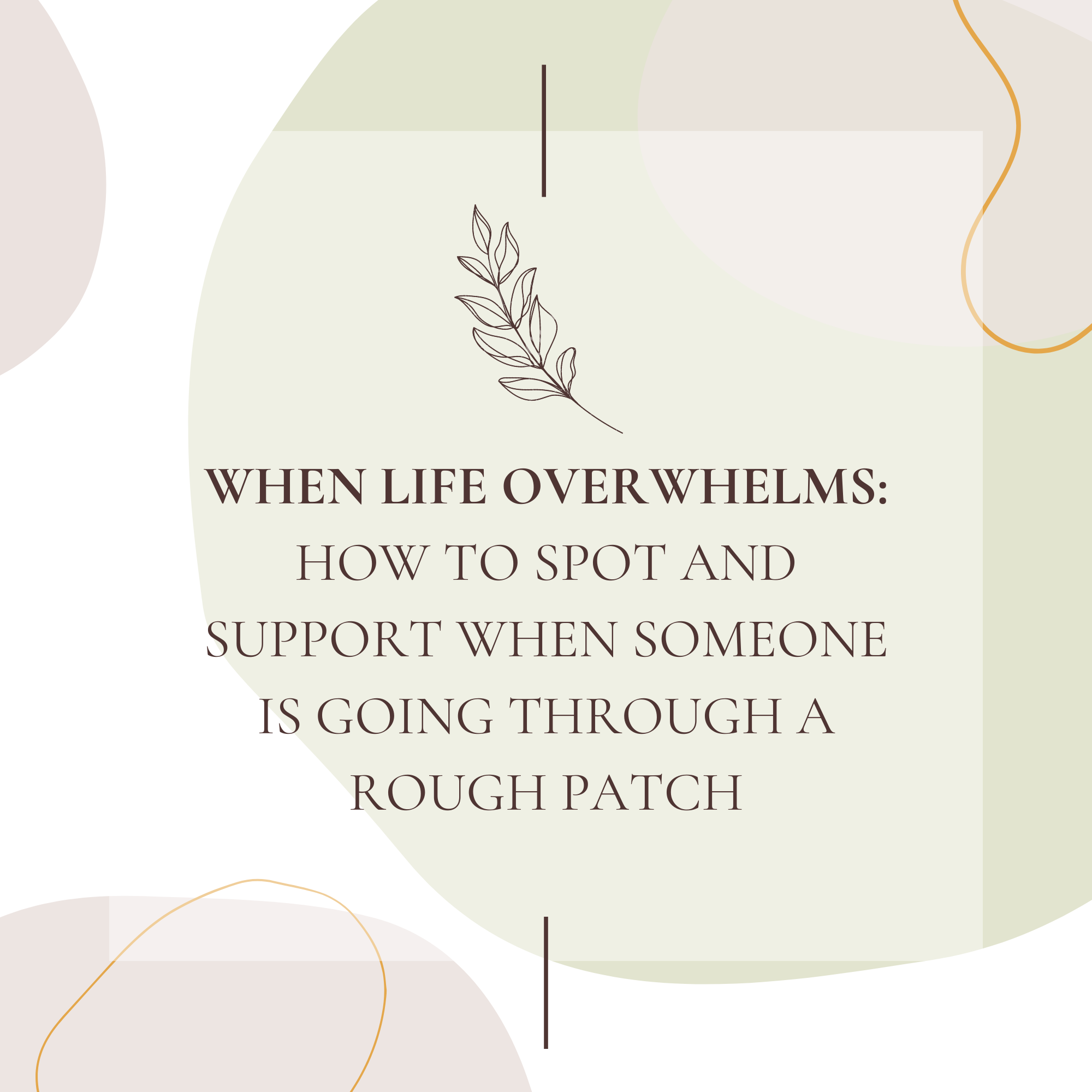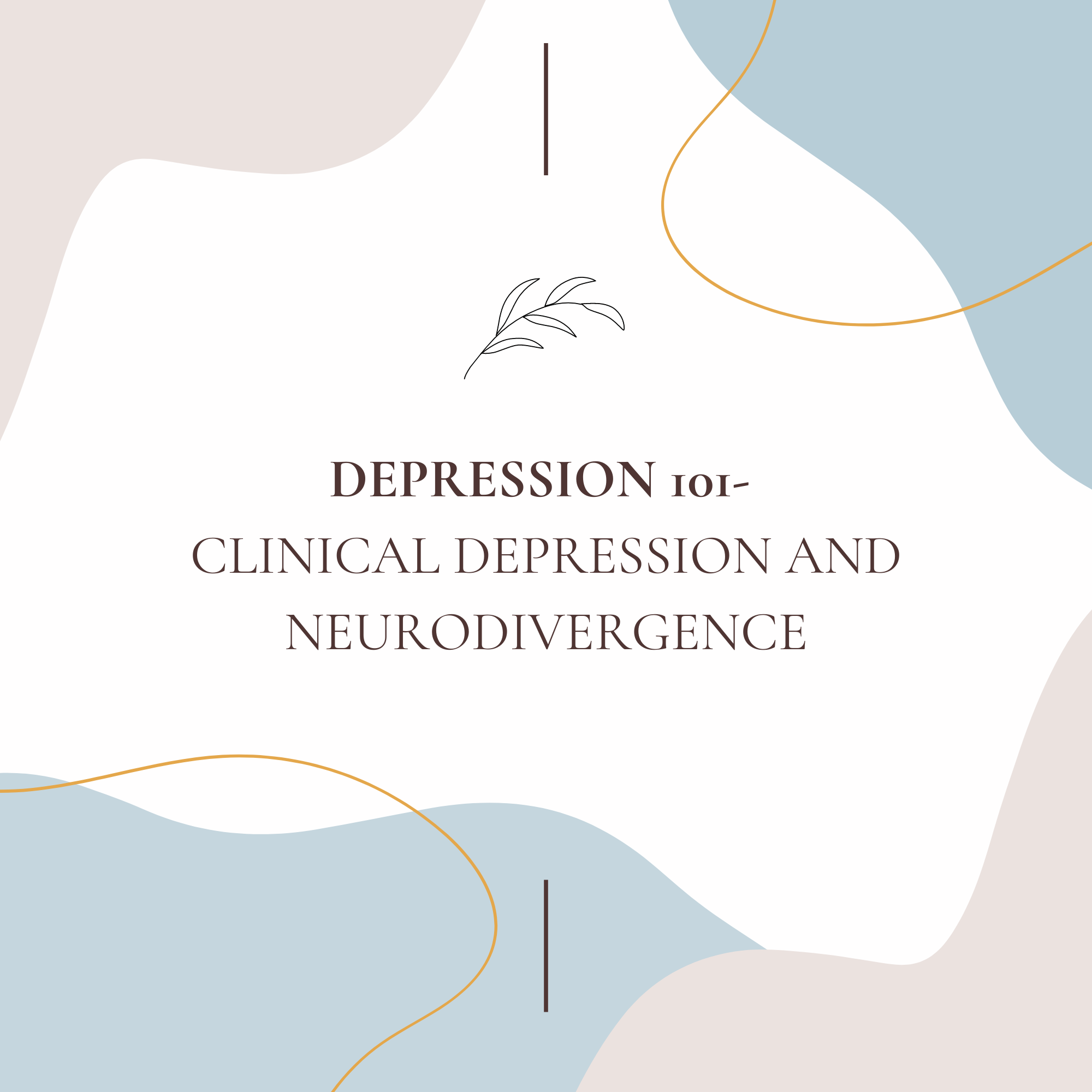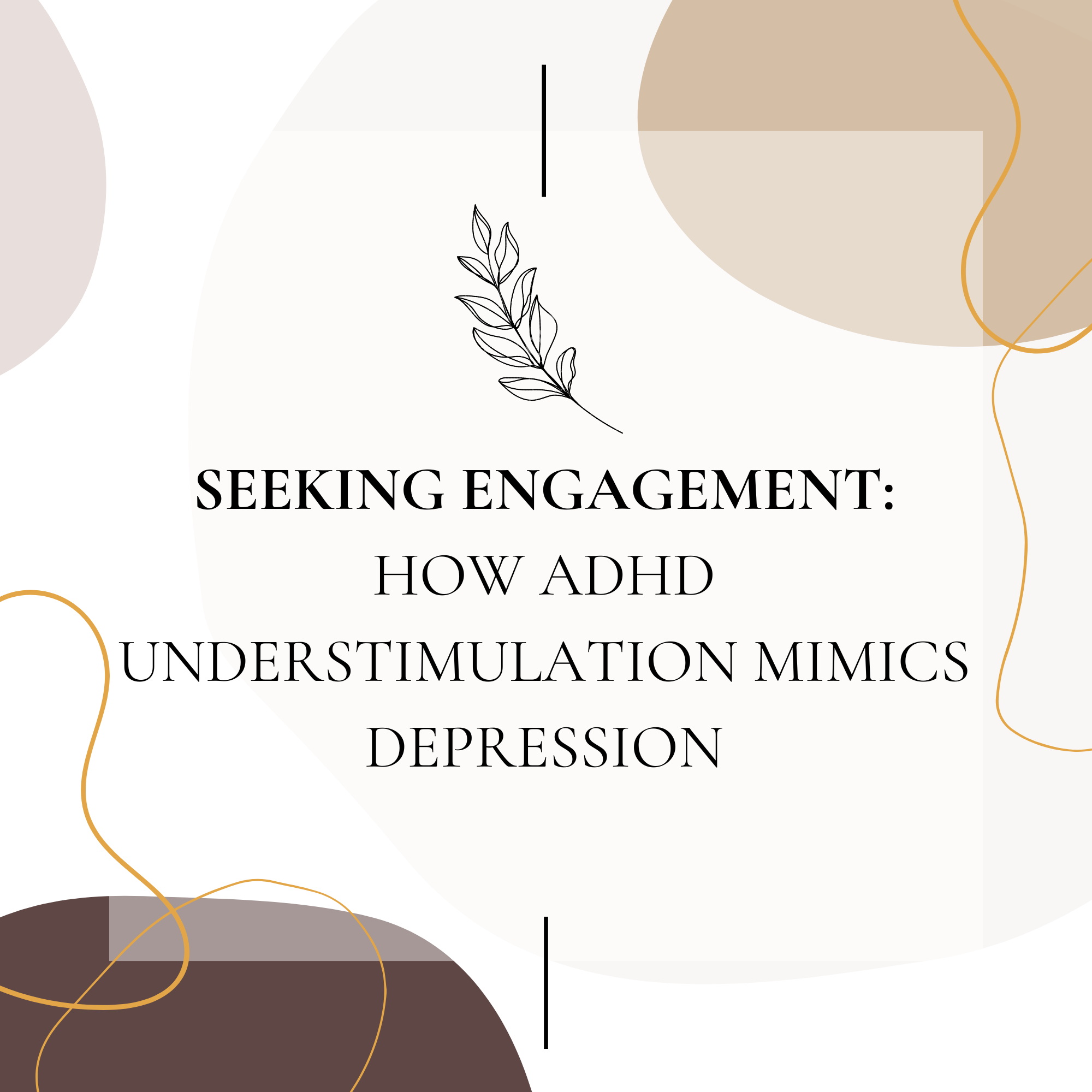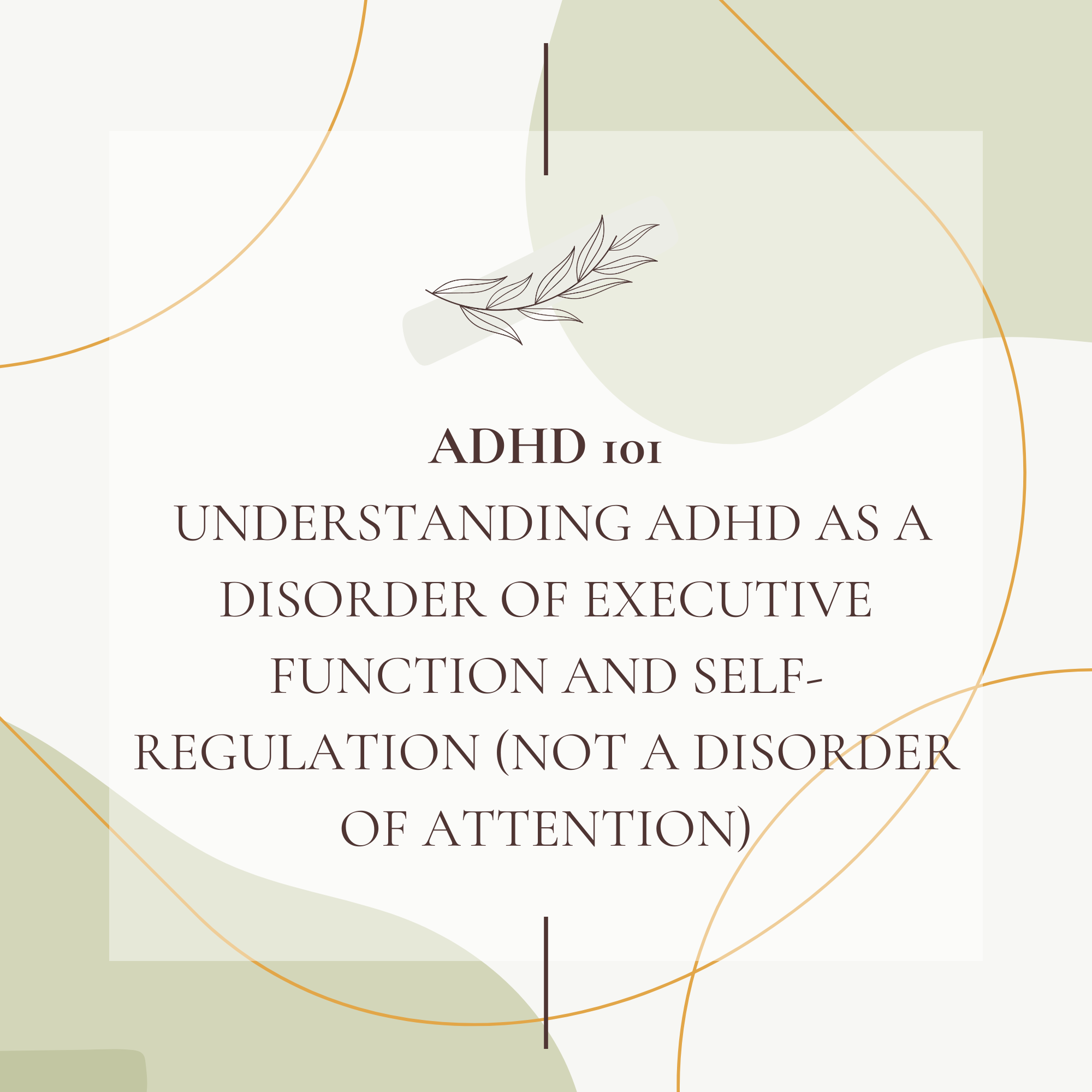
Disclaimer: This post/article/blog is for informational purposes only and is not a substitute for professional mental health advice, diagnosis, or treatment. Always seek the advice of qualified health providers with any questions you may have regarding mental health concerns.
Infographics were created by a mix of professionals and people with ADHD and selected by Katie to reflect what she has experienced personally and professionally.
Table of Contents
When Life Overwhelms: How to Spot and Support When Someone is Going Through a Rough Patch

Hi, I'm Katie.
I’m a neurodivergent mental health counselor. I specialize in helping neurodivergent adults navigate complex intersectional identities and comorbid mental health, trauma, or substance use.
This blog is shaped by my own education and experiences as a therapist. It's not a definitive resource, not a textbook to be quoted or a manual to be followed. Instead, it's an offering—by someone with an unusual mix of perspectives and skills. Someone who has spent too long living in and witnessing the growing disconnect between people and the cost of harmful misunderstandings.
Introduction

In our fast-paced, high-pressure world, it's not uncommon for people to experience periods of decreased functioning due to stress, overwhelm, or mental health challenges. These temporary dips in capability can affect anyone, from colleagues and friends to family members. Recognizing the signs that someone is struggling can allow us to offer support, adjust our expectations, and create a more compassionate environment. This blog post will explore how to identify when someone around you is temporarily at a lower level of functioning and what you can do to help.
Understanding Temporary Lower Functioning
Before we dive into the signs, it's essential to understand what we mean by "temporary lower functioning." This term refers to a period when an individual is operating below their usual capacity due to external stressors, mental health issues, or overwhelming circumstances. It's crucial to note that this state is temporary - with proper support and time, the person can return to their typical level of functioning.
Common Causes of Temporary Lower Functioning:
- Acute stress or prolonged chronic stress
- Major life changes or transitions
- Grief or loss
- Physical illness or injury
- Mental health conditions like depression or anxiety
- Burnout from work or personal responsibilities
- Relationship difficulties
- Financial problems
- Traumatic experiences
Signs Someone May Be Temporarily at a Low Level of Functioning
Changes in Work Performance
A decline in work performance is one of the most noticeable signs of lower functioning in a professional setting. This might manifest as:
- Missed deadlines or incomplete tasks
- Decreased quality of work
- Difficulty concentrating or making decisions
- Increased errors or oversights
- Lack of creativity or problem-solving ability
- Reduced participation in meetings or team activities
If you notice a usually reliable colleague suddenly struggling with their workload or producing subpar results, it could be a sign they're going through a difficult period.
Alterations in Communication Patterns
Changes in how someone communicates can be a strong indicator of lower functioning:
- Decreased responsiveness to emails, messages, or calls
- Shorter, less engaged responses
- Withdrawal from social interactions or conversations
- Increased irritability or defensiveness in communications
- Difficulty expressing thoughts or ideas clearly
- Forgetting important information or conversations
An ordinarily chatty friend who becomes withdrawn or a responsive colleague who takes days to reply to emails might be experiencing a period of lower functioning.

Physical Appearance and Self-Care Changes
Sometimes, lower functioning manifests in visible changes to a person's appearance or self-care habits:
- Neglect of personal hygiene or grooming
- Significant weight loss or gain
- Appearing tired or sleep-deprived consistently
- Wearing the same clothes repeatedly or looking unkempt
- Lack of attention to usual grooming routines (e.g., unshaven, unwashed hair)
While everyone has off days, consistent changes in appearance can signal that someone is struggling to maintain their usual routines.
Emotional Volatility or Flatness
Changes in emotional regulation can be a crucial sign of lower functioning:
- Increased irritability or angry outbursts
- Frequent tearfulness or emotional breakdowns
- Apparent lack of emotion or "flatness."
- Difficulty controlling reactions to minor stressors
- Expressions of hopelessness or worthlessness
- Sudden mood swings
If you notice someone who's usually even-tempered becoming easily upset or a typically expressive person seeming emotionally numb, it could indicate they're going through a tough time.
Changes in Energy Levels and Motivation
Low functioning often impacts a person's energy and motivation:
- Increased fatigue or complaints of constantly feeling tired
- Lack of enthusiasm for previously enjoyed activities
- Difficulty starting or completing tasks
- Procrastination or avoidance of responsibilities
- Decreased physical activity or exercise
- Spending more time in bed or sleeping excessively
A usually active and engaged individual who suddenly seems lethargic and disinterested might be experiencing a period of lower functioning.
Cognitive Difficulties
Stress and mental health issues can affect cognitive functioning:
- Forgetfulness or memory lapses
- Difficulty concentrating or focusing
- Slowered thinking or processing speed
- Indecisiveness or difficulty making choices
- Pessimistic thinking patterns
- Rumination on problems or perceived failures
If you notice someone typically sharp and focused struggling with basic tasks or decision-making, it could signify temporary lower functioning.
Changes in Social Behavior
How a person interacts socially can change during periods of lower functioning:
- Withdrawal from social activities or gatherings
- Canceling plans at the last minute
- Decreased interest in hobbies or group activities
- Avoiding one-on-one interactions
- Increased dependence on others or clingy behavior
- Pushing people away or creating conflicts
A usually friendly person who starts declining invitations or a team player who stops participating in group activities might need help.
Physical Symptoms
Sometimes, lower functioning due to stress or mental health issues manifests in physical symptoms:
- Frequent headaches or migraines
- Digestive issues or changes in appetite
- Muscle tension or unexplained aches and pains
- Skin problems like acne breakouts or eczema flare-ups
- Weakened immune system leading to frequent illnesses
- Sleep disturbances (insomnia or oversleeping)
While these symptoms can have various causes, sudden onset or increased physical complaints can be related to stress and lower functioning.
Changes in Substance Use or Risk-Taking Behavior
Some individuals might turn to unhealthy coping mechanisms during periods of lower functioning:
- Increased alcohol consumption
- Starting or increasing the use of recreational drugs
- Engaging in risky sexual behavior
- Reckless driving or other dangerous activities
- Compulsive shopping or gambling
- Excessive eating or restrictive dieting
If you notice someone adopting new, potentially harmful behaviors or increasing existing ones, it could be a sign they're struggling to cope.
Expressions of Overwhelm or Hopelessness
Sometimes, people experiencing lower functioning will directly express their struggles:
- Frequent comments about feeling overwhelmed or unable to cope
- Expressions of hopelessness about the future
- Talking about feeling trapped or stuck in their situation
- Mentioning suicidal thoughts or wishing they weren't alive
- Expressing guilt or feeling like a burden to others
- Saying they feel worthless or that nothing matters
These direct expressions should be taken seriously and addressed with empathy and support.
How to Respond When You Recognize Signs of Lower Functioning
If you notice these signs in someone around you, here are some ways you can respond:
- Express Concern and Offer Support
Reach out to the person and let them know you've noticed changes and are concerned. Offer specific support, like helping with tasks or being available to talk.
- Practice Active Listening
If they open up to you, listen without judgment. Avoid giving unsolicited advice and instead focus on understanding their experience.
- Encourage Professional Help
If their struggles persist, gently suggest they speak with a mental health professional. Offer to help them find resources or make an appointment if needed.
- Adjust Expectations
Temporarily modify your expectations of the person's performance or behavior. Be patient and understanding of their current limitations.
- Maintain Boundaries
While offering support is essential, maintain healthy boundaries to protect your well-being.
- Promote Self-Care
Encourage the person to engage in basic self-care activities like getting enough sleep, eating well, and exercising.
- Check in Regularly
Make a point to check in with the person regularly, even if it's just a quick message or call to see how they're doing.
- Create a Supportive Environment
If you're in a position to do so, create a more supportive environment. This might involve reducing stressors or providing accommodations.
- Educate Yourself
Learn more about stress, mental health, and coping strategies to understand better and support those around you.
- Take Action in Emergencies
If you believe someone is at immediate risk of harming themselves or others, don't hesitate to contact emergency services or a crisis helpline.
Conclusion
Recognizing when someone around us is temporarily functioning at a lower level due to stress, overwhelm, or mental health challenges is an essential skill in our personal and professional lives. By being aware of the signs and responding with empathy and support, we can create a more compassionate environment and help someone through a difficult period.
Remember, periods of lower functioning are often temporary. With the proper support and resources, most people can recover and return to their usual level of capability. By being observant and supportive, we can play a crucial role in helping our colleagues, friends, and loved ones navigate these challenging times and emerge stronger on the other side.
Recent Posts




